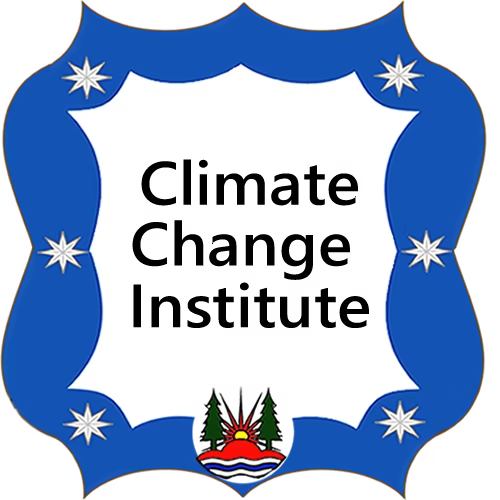The fifth round of negotiations for a new Global Plastics Treaty to end plastic pollution (Intergovernmental Negotiating Committee or INC-5) finished in Busan, South Korea on December 1st, 2024. This was supposed to be the final round of negotiations, but in the end the talks were extended.
We know that we urgently need an ambitious Plastics Treaty that protects our health, biodiversity and climate. Here is a rundown of the highlights from the talks, including why we didn’t come away from the meeting with a treaty.
1. We delivered your voice (and face) to world leaders
Greenpeace International, alongside Frontline activists, poet Nikita Gill, WWF, and Break Free From Plastic, delivered our collective petition — signed by almost 3 million to Senator Jeff Merkley and Juliet Kabera, Director General, Rwanda Environment Management Authority.
The petition was delivered as a globe to symbolise the millions of people around the world who have been calling for cuts to plastic production over the last two years.
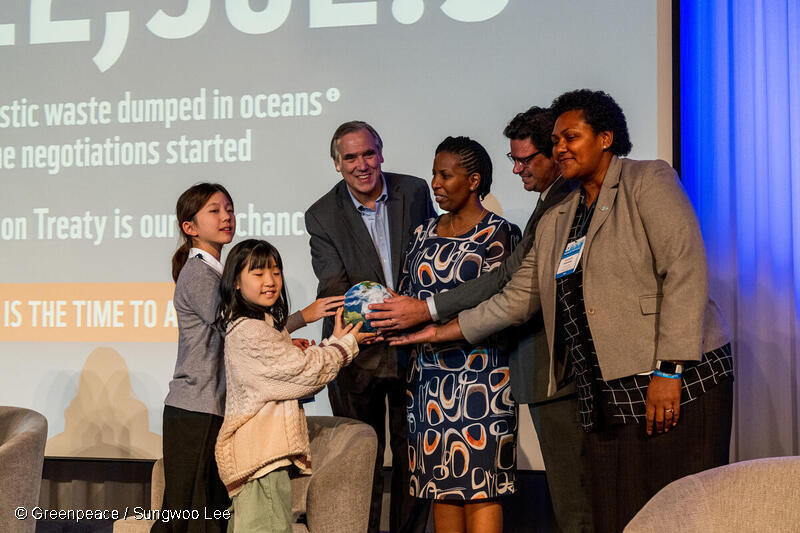
Then, to kick off talks, Greenpeace East Asia Seoul, in collaboration with artist and activist Dan Acher, sent a bold message to governments flying a massive eye above treaty talks in Busan to show world leaders: #WeAreWatching! The flag is made up of thousands of portraits representing millions of signatures of people all over the world.
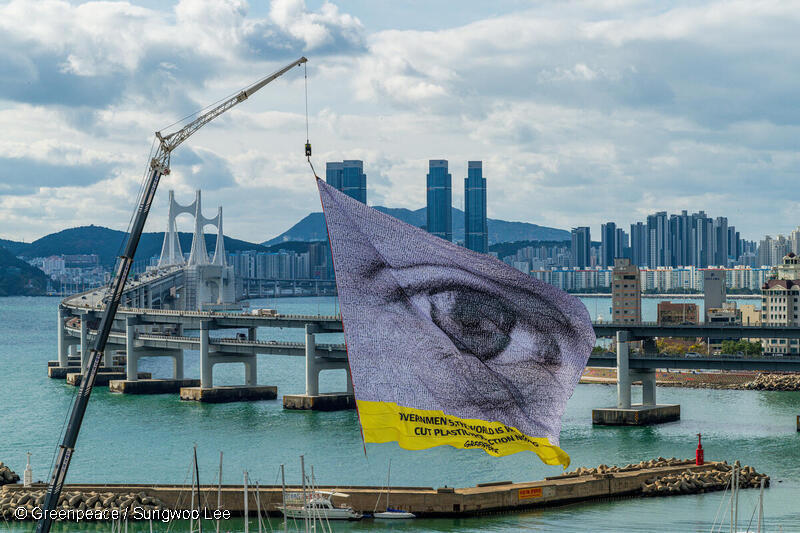
2. The fossil fuel industry worked hard to derail everything
Since the very first round of negotiations, oil-producing countries and the petrochemical industry have used their power to make sure that we waste precious time. This meeting was no exception: 220 fossil fuel and chemical industry lobbyists registered to attend INC-5, the highest at any negotiation for the Plastics Treaty so far.
This is more than the previous high of 196 lobbyists analysed by the Center for International Environmental Law (CIEL) at the last meeting. That’s more than the the Scientists’ Coalition for An Effective Plastic Treaty by three to one, and the Indigenous Peoples’ Caucus by almost nine to one.
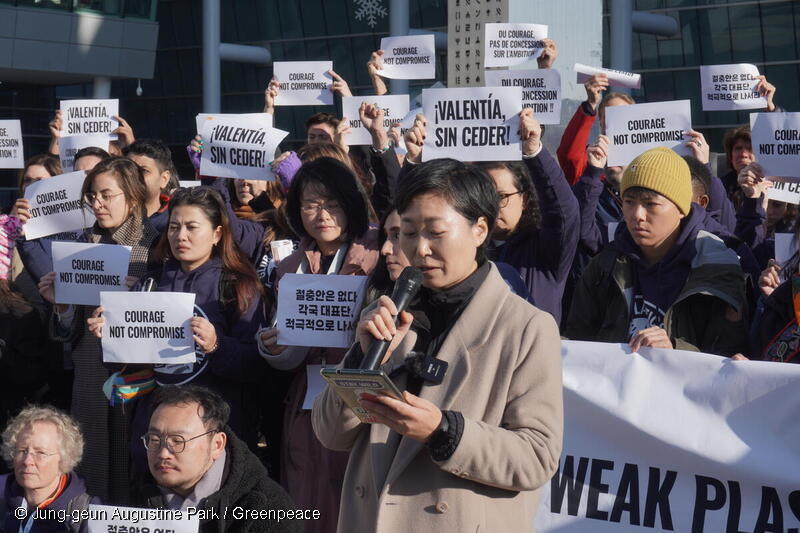
3. Over 100 countries stood up for ambition
On the positive side, thanks to a huge push from Greenpeace and our allies, over 100 Member States, including Canada, representing billions of people, signed a declaration in support of a meaningful treaty, including a global plastic production reduction target. These countries literally stood up for ambition, where Panama’s lead negotiator, and the star of the show, Juan Carlos Monterrey, wearing his iconic hat, spoke truth to power in the room:
“This is a fight for survival…. Plastics are a weapon of mass destruction.”
This was a huge moment in the treaty process, and now gives us momentum and a clear commitment to hold Canada and all these countries accountable as we continue on this process to secure a strong treaty that drastically cuts plastic production, centres the rights and knowledge of Indigenous People and ensures a just and inclusive transition to a zero waste, reuse-based future for all impacted communities and groups, and finally rids our lives of harmful chemicals and plastics.
4. Civil society was locked out
Many of the most critical meetings to decide whether we will have a meaningful treaty took place behind closed doors, with no participation from observers allowed. That means civil society groups, Indigenous rights holders, scientists and others had no visibility into much of the negotiations.
This not only limits accountability for Member States to do one thing and say another, but it robs delegations from countries with less resources of the support they rely on from civil society. This is completely unjust and outrageous, and we will fight hard to ensure it does not happen again.
5. We stopped a weak treaty from being signed
Finally, while we didn’t come away with a Plastics Treaty, there was a real risk at INC-5 that we ended up with a weak treaty written to please a minority of blocking states and their fossil fuel industry supporters. But thanks to strong pressure, Member States rejected a toothless deal that would have accomplished nothing, and stood before the world committing to an ambitious treaty. Now, it’s time they stand by this promise and deliver a strong treaty for people and planet!
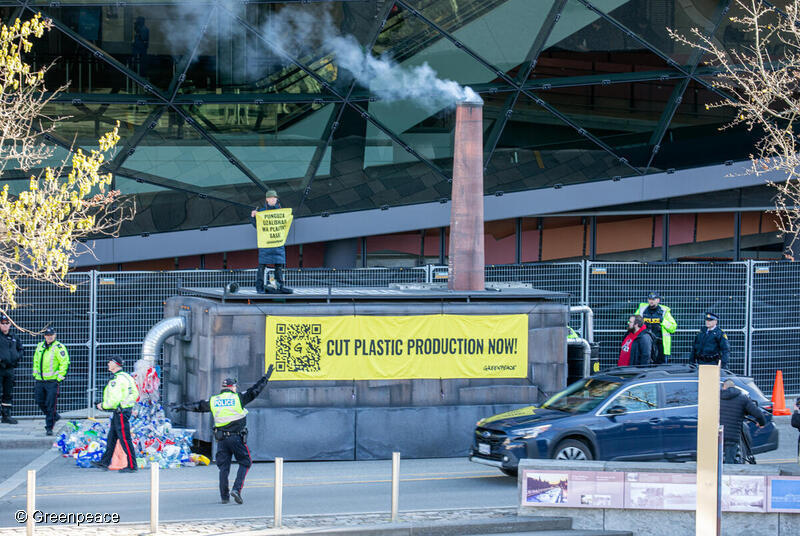
Plastic production is exacerbating the climate crisis and is set to triple by 2050. We know that we can’t recycle our way out of this crisis, we have to make less plastic! That is why we absolutely must reduce plastic production by at least 75% by 2040. A strong Global Plastics Treaty must hold the big polluters responsible and protect our climate, our health and our common home. Onwards to INC-5.2!
Want to add your name to the movement to fight plastic pollution? Take action now and sign and share today!
Sarah King is a Senior Subject Matter Strategist at Greenpeace Canada.
Sam Chetan-Welsh is Senior Policy Advisor for Greenpeace’s Plastic Free Future Campaign.
